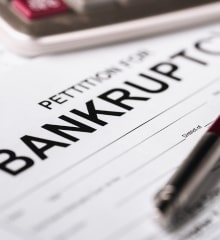Can I Keep My House if I File for Bankruptcy?
In this difficult economic climate, millions of Americans are facing foreclosure. Chapter 7 and Chapter 13 have helped many people stay in their
homes. A qualified and experienced Atlanta, GA bankruptcy attorney can review your income and debt and help you develop a sound bankruptcy
strategy for keeping your home.
Under Chapter 7, a bankruptcy trustee can sell your non-exempt property and distribute the proceeds to your creditors, thereby liquidating your
debt. However, certain items are excluded from seizure. In Georgia, you may not use federal bankruptcy exemptions. However, under
Georgia’s homestead exemption,
you may keep up to $10,000 of equity in your home. That amount doubles to $20,000 if you are married, own the property together and are
filing bankruptcy jointly. During the mortgage process, foreclosure activity stops unless the bank asks the court for permission to proceed.
Chapter 7 is generally not considered the best bankruptcy option for anyone with significant assets. Chapter 13 is a better solution if
you meet these qualification requirements:
- No more than $1,149,525 in secured debts
- No more than $383,175 in unsecured debt
- Enough income to pay off your reorganized debts within the agreed upon timeframe (usually 36 to 48 months)
The minute you file your Chapter 13 petition, your creditors are stopped from taking any further collection actions. Attempts to foreclose on your
home must stop.
As part of your Chapter 13 debt restructuring plan, your attorney may be able to negotiate lower mortgage payments. Or, you may be able to make up
the amount you are overdue by agreeing to larger monthly payments going forward. This is called curing a default. If you have had trouble
communicating with your lender, the court can order and supervise a loan modification process.
The trustworthy attorneys at DebtStoppers help clients may make fresh financial starts. Call 404-796-7161 to schedule a free
consultation to develop a plan to save your home.


